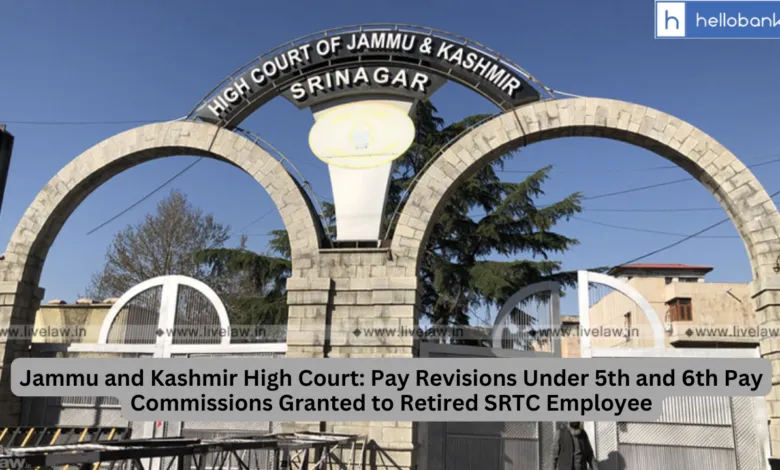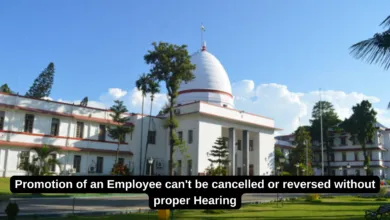Jammu and Kashmir High Court: Pay Revisions Under 5th and 6th Pay Commissions Granted to Retired SRTC Employee

The Jammu and Kashmir High Court, under Justice M.A. Chowdhary, ruled in favor of Suraj Parkash, recognizing his entitlement to pay revisions under the 5th and 6th Pay Commissions, despite his retirement. The court held that since Parkash had been treated as a government employee for pension purposes, he was also entitled to the pay revisions stipulated under the relevant Statutory Rules and Orders (SROs).
Background
Suraj Parkash, an employee of the Jammu & Kashmir State Road Transport Corporation (SRTC), sought higher pay grades as per SRO 18 (1998) and SRO 93 (2009), which implemented the 5th and 6th Pay Commission recommendations. He pointed out that other state corporations had adopted these revisions, but his pay scale had remained unchanged for years. Though eligible for promotion to Assistant Work Manager, Parkash did not receive the promotion for over 25 years. He retired in 2017, and while he had been granted benefits under the 7th Pay Commission, his claim for prior pay revisions was denied.
Arguments
The petitioner argued that the refusal to apply the benefits of SROs 18 and 93, despite them being adopted by other state corporations, was arbitrary and discriminatory. He maintained that since he had already received pension and 7th Pay Commission benefits, he was also entitled to arrears for the prior pay revisions.
The SRTC countered that Parkash, having chosen to be governed by the corporation’s staff rules, was not entitled to benefits under the 5th and 6th Pay Commissions. They emphasized that the corporation had its own pay structure and that his claims were not legally valid, citing an internal review order from April 2018.
Court’s Reasoning
The court first highlighted that Parkash had already received benefits under the 7th Pay Commission, typically granted to government employees in pensionable positions. Since he was treated as a government employee for pension purposes, the court found no valid reason to deny him the benefits of the 5th and 6th Pay Commissions under SROs 18 and 93. His long service as a Senior Driver and later as a Vehicle Inspector further strengthened his entitlement to these pay revisions.
The court referred to the precedent set in All J&K Workers Union, State Road Transport Corporation v. State of J&K & Ors (2013), which established that SRTC employees had the right to opt for pay benefits similar to those of government employees. In that case, the court had ruled that even retired employees or the legal heirs of deceased employees were entitled to exercise the option to receive the benefits.
Additionally, the court underscored the importance of fairness, stating that the refusal to extend pay revisions to Parkash while granting them to similarly placed employees violated the principles of fairness. As a model employer, the state and its corporations have a duty to act equitably.
Conclusion
The court declared the rejection of Parkash’s claim in the April 2018 order as “inconsequential and ineffective.” It directed the respondents to reassess his entitlement to pay revisions under SROs 18 and 93 and to place him in the appropriate pay scale. Furthermore, the court ordered the authorities to pay all differential arrears owed to Parkash within eight weeks, quashing the earlier rejection and granting him the rightful pay revisions and arrears.

